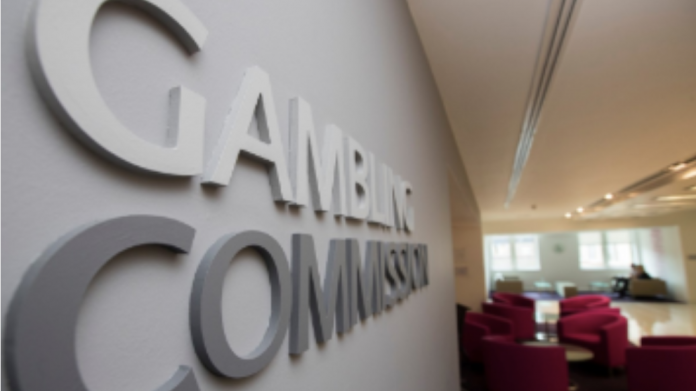The UK Gambling Commission has reiterated that it is well set ahead of “one of the busiest milestone years” in its history after reflecting on its 2022/23 performance via the publication of an annual report and accounts.
Led by an address by the leadership of Chief Executive Andrew Rhodes and Chair Marcus Boyle, the pair stressed delight at what was hailed as an “immensely demanding but successful year”.
Unsurprisingly, it is white paper progress that was the first port of call for Rhodes and Boyle, following a series of consultations launching in June alongside the UK government that are tasked with advancing ambitions of the Gambling Act review.
“Much work has gone into our advice to the government as its statutory advisors on the gambling industry,” they wrote.
“This advice, underpinned by a wealth of research and insight, reflects our own ambitions for a well-regulated industry.
“To bring these proposals to life, work has already begun on planning for the next steps for engagement with the industry and interested stakeholders to deliver against the government’s ambitions collectively and transparently.”
“Whilst the popularity of gambling in person has declined over time, retail remains a significant part of the sector”
Headline figures saw total GGY gained from over 2,400 operators during April 2021 to March 2022 come in at £14.1bn, up 10.9 per cent year-on-year.
However, the online sector dropped 6.2 per cent from this time frame to £6.4m, but this figure does represent a 12.4 per cent uptick when compared to the comparative period through 2019/20.
It is estimated that two-fifths, or approximately 23.6 million, of the UK adult population gamble on a regular basis, with the figure declining to 15.5m when excluding those that exclusively play National Lottery draws.
On an online basis this comes in at 14.3 million, or 9.9 million without the lottery, while 14.6 million frequently participate on in-person activities. This latter figure declines to 10.4 million minus the impact of the NL.
Online participation continues a spate of yearly increases, with participation up from 25.3 per cent to 26.9 per cent, however, the UKGC highlights that “levels of participation remain somewhat lower than pre-pandemic levels”.
The retail sector continues to recover from the severe impacts of the pandemic by reaching a percentage of 27.5 (2021/22: 24.5 per cent).
“The biggest change in the gambling landscape over recent years is a shift to online play, reflecting our lifestyles in general,” the report noted.
Adding: “Whilst the popularity of gambling in person has declined over time, retail remains a significant part of the sector and is showing signs of recovery following the pandemic.”
During the reporting period, enforcement action was taken against a total of 24 operators, which saw £60.1m issued in fines (£20.9m) or regulatory settlements (£39.2m) in a year that represented “a high-profile one for the Commission”.
“We made clear in 2021 that we would take escalating measures against recidivist behaviour”
Among these was a record £19.2m penalty issued to William Hill, while Entain was ordered to pay £17m, with each representing social responsibility and anti-money laundering failures.
“We made clear in 2021 that we would take escalating measures against recidivist behaviour and that is exactly what we have done,” Rhodes and Boyle stressed.
Furthermore, the regulator once again stressed that the overall headline problem gambling rate is statistically stable at 0.3 per cent, with the debate surrounding such issues having been, and remaining, intense across recent times.
According to the 2018 Public Health Survey for England, between 160,000 and 340,000 adults in England are classified as problem gamblers according to the Problem Gambling Severity Index.
In addition, around 270,000 and 480,000 adults in the country are classified as moderate risk gamblers according to the PGSI.
“Against this backdrop of changing trends, our data shows that although the vast majority do not experience gambling-related harms, there are still significant numbers of people who do encounter issues with their gambling,” the UKGC report continued.
“The precise measurement of problem gambling and harms is complex and needs continual development, however, we do know that hundreds of thousands of gamblers are suffering negative consequences from their gambling.”
Furthermore, the UKGC disclosed that total income from licensing fees and other sources stood at £26.09m (2021/22: £20.18m), which primarily comprised the former via a figure of £22.89m (2021/22: £18.02m).
“We face one of the busiest milestone years in the Commission’s history”
Total expenditure on operating costs through the year stood at £40.91m, down nine per cent from the previous year’s £45.11m. Of this, £19.33m (2021/22: £18.85m) was set aside for monitoring purposes, while National Lottery functions accounted for 21.55m (2021/22: £26.26m). This includes £19.15m for the fourth licence competition.
“One of the Commission’s core aims is to be the trusted and authoritative voice on gambling, which is particularly challenging in an arena where there are many strong and often opposing views.” Rhodes and Boyle continued.
Concluding: “We face one of the busiest milestone years in the Commission’s history as we push to consult on, and implement, the key actions from the government’s Gambling Act review white paper.
“That will need everyone in the industry working closely and to one common goal – to make Great Britain’s hugely innovative gambling sector the safest and fairest it can be.”













